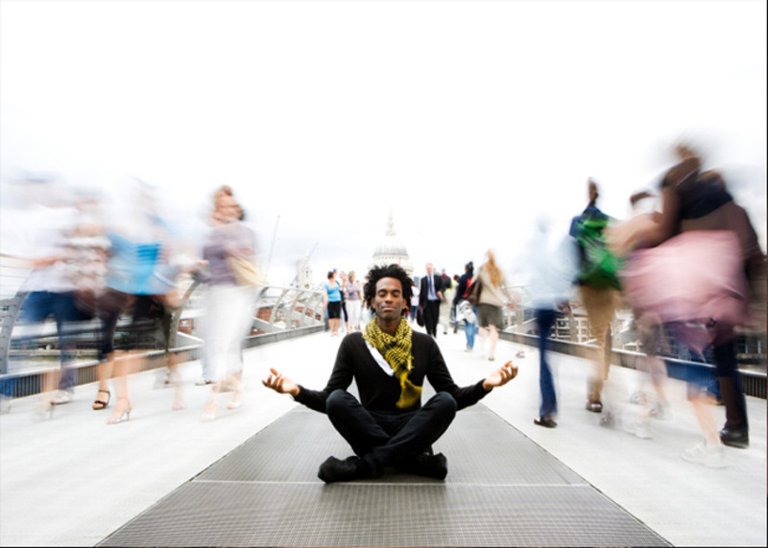Hi everyone! Here is my first post. Instead of telling you about myself, I have decided to give you a general overview of something that I love: meditation. I go into the benefits, a couple scientific studies, and how to do it. Enjoy!

Mediation: it’s the ancient art of a monk. One can imagine a man sitting in an odd position, robes on, eye’s closed, and hands out—the air still, except for a resonating “hummm.” However, today we're going to talk about a more modern approach—a mix between the East and West. This approach should get you jumping out of your seat in glee, for it is no longer sanctioned for spiritual quests, and based on recent scientific evidence, it can benefit everyone.
For the past decade, scholars from Oxford, UCLA, and other reputable universities have been shining a scientific light onto this ancient practice. This short article aims to give a brief introduction into meditation and how to do it. If you are interested in the scientific evidence or more detailed guides to practicing meditation, stay tuned for later posts, the resources below, and a paper I wrote on the topic.
Accepted benefits of meditation:
- Reduces stress
- Increases in focus and concentration (which helps with getting into flow states)
- Increases happiness
- Increases self-awareness
- Slows aging
- Reduces anxiety
- Boosts immune system
How to Meditate
Learning how to meditate is easy, but getting good at it is hard. There is only one rule: embrace. After sitting down, you close your eyes and simply choose something to focus on, the most common being your breath. One’s job is to put all of one’s attention—and embrace—the actions and sensations around the breath. It seems so trivial, and that is likely one reason why it works.
When any other thought enters the mind, try to drift back to the breath. Any thought that makes you stressed, anxious, or experience any negative (or positive) emotions, you will disregard in order to refocus on the breath.
How long to Meditate
You do not need to put in much time to reap the benefits from meditation. If you’re just starting out, try it for five to ten minutes every few days, but be consistent with it. In one study, the participants meditated for an average of 16 minutes a day for an average of 25 out of 28 days. After this period, their stress levels “improved significantly from baseline” (Prasad 45-8). Another study done at Carnegie Mellon noticed similar improvements in stress after participants mediated for 25 minutes a day for only three days (David 1).
Resources
David, Creswell J., et al. "Brief Mindfulness Meditation Training Alters Psychological and Neuroendocrine Responses to Social Evaluative Stress." Psychoneuroendocrinology 44 (2014): 1-12. MEDLINE. Web. 4 Dec. 2015.
Prasad, Kavita, et al. "Effect of a Single-session Meditation Training to Reduce Stress and Improve Quality of Life among Health Care Professionals: A 'Dose-ranging' Feasibility Study." Alternative Therapies in Health and Medicine 17.3 (2011): 46-49. MEDLINE. Web. 27 Nov. 2015.
Hey Joseph, welcome to Steemit! Thanks for sharing your work. Right now the attention is on the first AMA but I hope people will notice this too.
Thanks! I will have to do an AMA soon then :)
Great first post. Welcome!
I enjoyed reading this post! I practice yoga and get my meditation in that way, but you've encouraged me to take five minutes today to dedicate only to this thanks